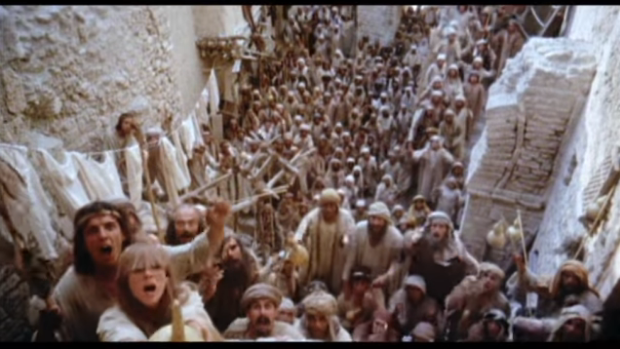We're all individuals: In an age of identity politics, Jesus sees the person
I was at an event recently where there were some presentations before we broke into smaller groups. At one point my group was talking about how the wider community could be represented within the new approach that was being discussed. This led to comments about whose interests were being represented and someone made a comment about 'rich, white men', which someone else followed up with a reference to people who are 'pale, male and stale'.
It was at this point that I became very conscious of being the only man sat around a table with about a dozen women. To be clear, I didn't think these comments were aimed at me – it wasn't a confrontational discussion, it just felt very weird.

As a white, middle class male I am not used to standing out. I haven't had to fight past barriers that others have, I haven't had to overcome others perceptions of me. It's been easy to take that for granted and it's an education to experience how people can be viewed through the lens of a category. It felt odd to find myself inadvertently lumped into a group.
All this set me thinking about the tricky but inevitable business of how we talk about and categorise other people. I couldn't help thinking about the moment in Monty Python's Life of Brian when Brian addresses the crowd and tells them that they are all individuals: 'Yes, we're all individuals' they shout back in unison.
We are individuals but we find meaning within a wider community.
The business of definition and categorisation is fraught with difficulty. How do we respect the individual while needing to have some ability to categorise people for society to be able to function? The simplest answer for me is to treat each person we come across with dignity and to resist the temptation to negatively label people.
As a Christian, one of the cornerstones of my faith is that every person has been made by God and is 'made in his image'. This means we have an intrinsic value – we are known by God and made to display who he is. The rejection of God since the Enlightenment has sought to make man greater – to say that we don't need God – but the effect is to make man less. Without God, we have no intrinsic value – we are just another homo sapiens among billions fighting to get noticed and get ahead in a competitive world.
It is part of human nature to compartmentalise and categorise people to make sense of the world we inhabit but this often has negative effects. We make ourselves feel better about ourselves by separating ourselves from the 'other'.
The church is not immune from this. It has often given the impression of setting itself apart as the good judging the bad. In fact, the Bible clearly tells us not to judge and that God's work in our lives is a product of his grace, not our goodness. We need to follow the example of Jesus who made clear that everyone was welcome.
We should never forget that Jesus was a rebel who upset the social order. He was castigated by the Pharisees, the religious rulers of the day, for eating with sinners without any recognition from the Pharisees that they might be sinners themselves. This is beautifully encapsulated by the story of the woman caught in adultery. She was dragged forward to be stoned, and Jesus' riposte was devastating: anyone without sin could throw the first stone. No one did.
As a church that can feel confused and threatened by the world around us, the call is clear. The call is to engage positively with our communities as Jesus did, to love every individual no matter what we make of them and to offer a welcome into God's church. Faith is not something to be shouted from a safe distance or imposed with judgment – the call is to offer an invitation to join the gang who together are trying to figure life out with God's help.
Dave Luck is the author of 'What Happens Now? A journey through unimaginable loss' and blogs weekly on www.daveluckwrites.co.uk. Follow him on Twitter @dluckwrite or on Facebook at the 'Daveluckwrites' page.











